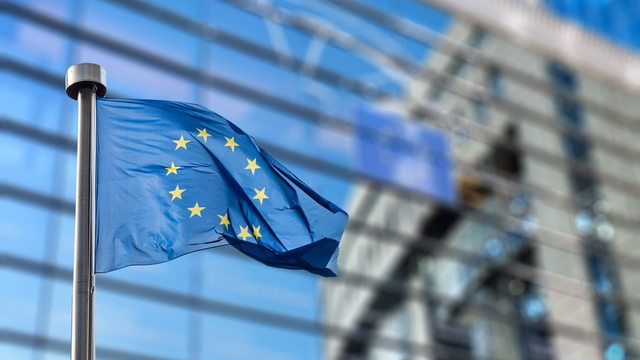Council of the EU backs extension of trade liberalisation for Ukraine, discussion continues

The Council of the EU at a meeting on March 21-22, fundamentally supported the extension of the Autonomous Trade Measures (ATM) for Ukraine, providing preferential conditions for Ukrainian exports to the EU, but the final decision is still being agreed upon, Deputy Prime Minister for European and Euro-Atlantic Integration Olha Stefanishyna has said.
"The European Council voted in favor of the decision on trade liberalisation," she said at the Forbes Exporters Summit in Kyiv on Friday, adding that only a number of technical issues remained.
"The decision on trade liberalisation was discussed during the meeting of the European Council. EU leaders supported the importance of extending ATM. The approval process continues," Stefanishyna told Interfax-Ukraine.
The deputy prime minister said that the conclusion following the meeting of the European Council stated that it calls for continued work without delay to address issues related to the ATM for Ukraine "in a fair and balanced way."
"At the same time, the need to prepare a solution in the framework of the EU-Ukraine Association Agreement/Deep and Comprehensive Free Trade Area has been noted," Stefanishyna also said.
As reported, the Council of the EU and the European Parliament have provisionally agreed to renew the suspension of import duties and quotas on Ukrainian exports to the EU for another year, until 5 June 2025, beefing up safeguards for sensitive agricultural products. The new safeguards, in particular, oblige the European Commission to automatically reintroduce tariff quotas if imports of eggs, sugar, oats, corn, cereals and honey exceed the arithmetic average of import volumes in 2022-2023.
At the same time, major European agricultural associations and farmer unions say the proposed safeguards are insufficient to protect the EU market from imports of Ukrainian agricultural products and demand tougher restrictions. They insist, in particular, when calculating import limits from Ukraine, to take into account data for the pre-war 2021, when such imports were minimal, instead of the two war years proposed by the European Commission – 2022-2023. In addition, farmer associations propose to include wheat in the list of sensitive agricultural products, the export of which will be limited by safeguards.










